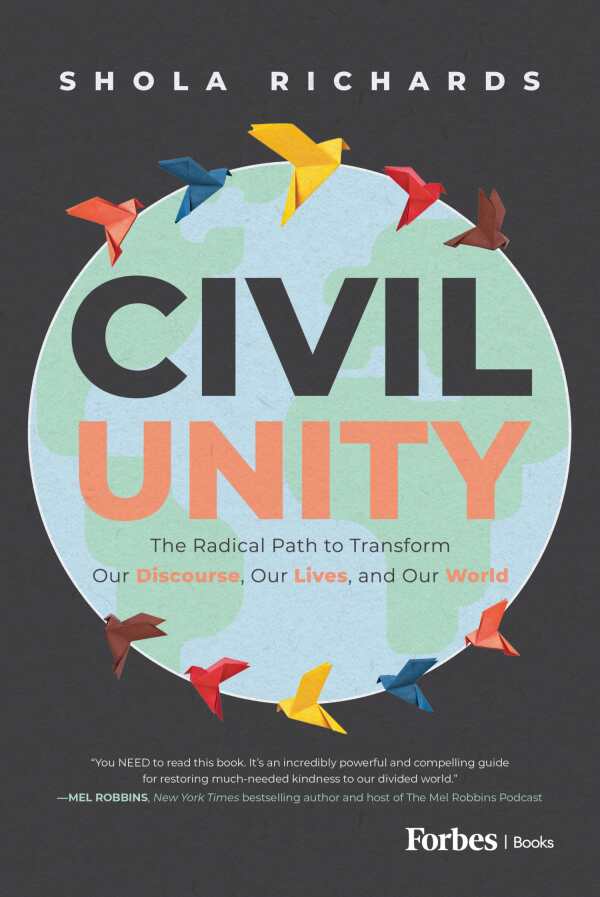Civil Unity
The Radical Path to Transform Our Discourse, Our Lives, and Our World
The social science guide Civil Unity recommends means of building a more thoughtful and considerate world, one conversation or social media post at a time.
Shola Richards’s thoughtful social science manifesto Civil Unity is about making the world a better place.
The chapters build on each other, beginning by establishing a foundational understanding of what civility is, the perils of indifference, and the inner work that’s needed to build respect. Historical data is used to suggest that a small number of people engaged in ensuring civility could change the way people treat each other on a global level. Warnings against acting with incivility pair with ideas about how changes can be made in interpersonal relationships and about cultivating respect for others and learning to disagree in a healthy way. For practical guidance in interactions with one’s family members, coworkers, and strangers, the book includes sample arguments and recommendations for approaching conversations in a healthy manner, modeling being more careful, thoughtful, and kind.
The chapters end with “intentional consistent interventions”—summaries of their content and means of tracking personal progress. With the chapter on logical fallacies and implicit biases, for example, the end of the chapter names steps for questioning those problems. Acronyms are used to make the strategies easy to recall too.
Also included are generalized tips for addressing leaps of logic and entrenched biases in arguments, as with paying attention to the language that people use in heated debates. The book recommends establishing ground rules of respect and even ending debates that get too personal. It suggests that common ground can be found on decisive issues and proposes means of disagreeing in an effective manner, as with its potential responses on issues like abortion and gun control.
The differences between disinformation and misinformation are discussed, and there’s advice for spotting and challenging both: research, cross-referencing sources, and thinking like a fact-checker. Some such advice is more familiar than radical, though the book argues that often people lack the skills that it models. And the book draws on personal workplace anecdotes to illustrate its perspectives, as with its pointers for dealing with microagressions and shutting down ignorant comments, toxic workplaces, and radicalization. It’s full of practical advice for vital work at an individual level as well as for interactions with others.
Civil Unity is a cogent self-help guide about starting healing conversations in the workplace and the wider world.
Reviewed by
Sarah White
Disclosure: This article is not an endorsement, but a review. The publisher of this book provided free copies of the book and paid a small fee to have their book reviewed by a professional reviewer. Foreword Reviews and Clarion Reviews make no guarantee that the publisher will receive a positive review. Foreword Magazine, Inc. is disclosing this in accordance with the Federal Trade Commission’s 16 CFR, Part 255.

